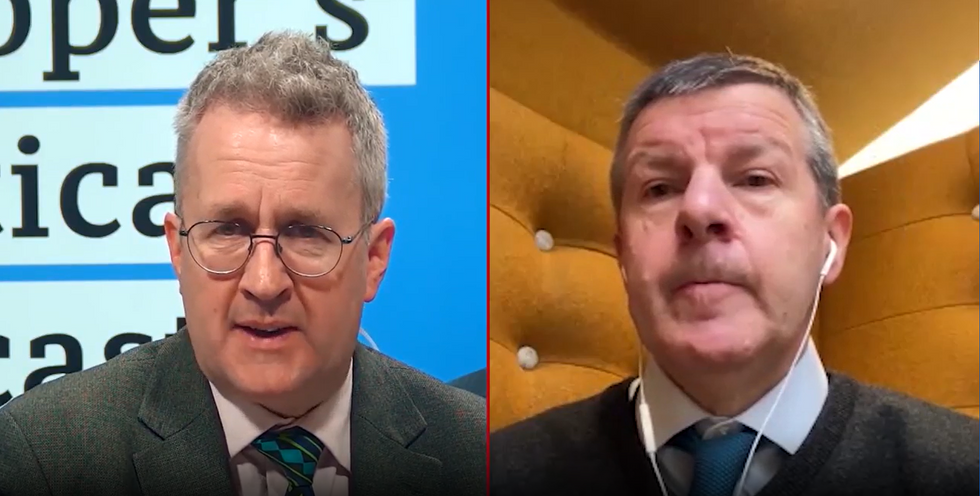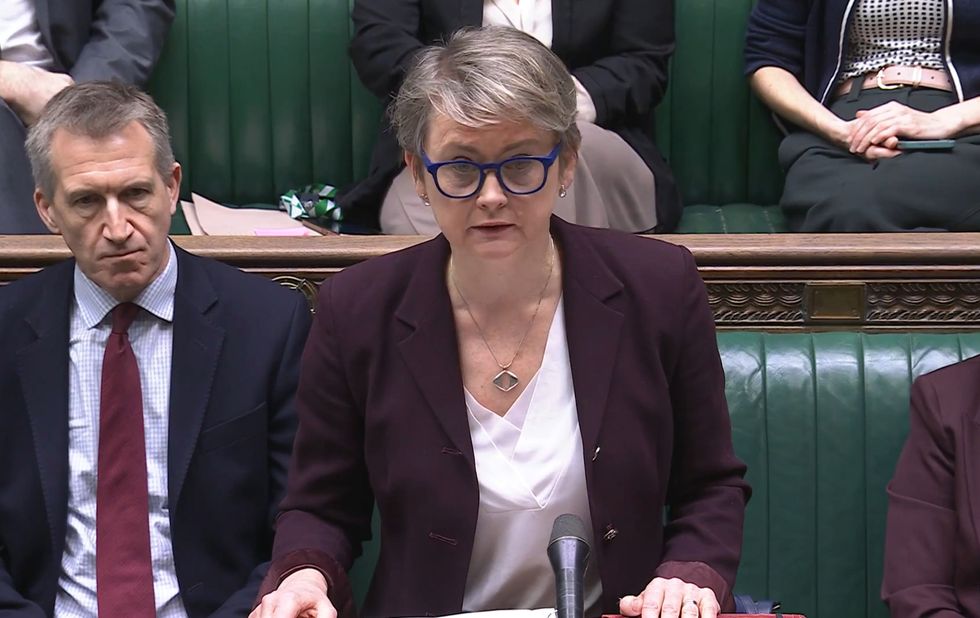A lawyer representing dozens of victims of child grooming gangs says there are potentially hundreds of thousands of victims “in every town and city” across the country.
But David Greenwood, a director of Wakefield-based law firm Switalskis, said he opposed a national public inquiry and instead said that any cash should be spent on implementing the findings of the 2022 Alexis Jay inquiry.
The news comes after Yvette Cooper, the Home Office, announced Baroness Casey would undertake a “rapid audit” of the “current scale and nature of gang-based exploitation across the country”.
Greenwood, who is at any one time representing between 50 and 60 victims seeking compensation from the authorities who failed them when they were children, said the number of cases was “very substantial”.

David Greenwood appeared on Chopper’s Political Podcast
GB News
He told today’s Chopper’s Political Podcast: “It’s in every town and every city – kids on the street are being exploited for sex and there’s obviously the criminal exploitation as well.”
Asked if there could be hundreds of thousands of girls [now adults] affected, he said: “Yes, definitely.”
Greenwood said that a new national public inquiry he said it would be a “waste of money” as “some excellent recommendations” came of a wider report into child sexual exploitation by Alexis Jay in 2022 are yet to be implemented.
He said: “If we are to concentrate on future safeguarding and future prevention of this – a national inquiry to explain the extent of it and who’s committing it and what went wrong is not going to help.
“The money that could be used for an inquiry should be used to implement those recommendations from the Alexis Jay inquiry.”
Greenwood said that he had encountered victims drawn from across northern England, Rotherham, Huddersfield, Batley, Dewsbury, Bradford, Greater Manchester, Oldham, Rochdale and Bolton.
LATEST DEVELOPMENTS:

Yvette Cooper announced a number of local inquiries into the grooming gangs
PA
He helped them after they had gone to the police to try to hep them win compensation, often from the local authorities or police forces who had failed them.
For the victims, who are normally in their 20s, the legal process can be traumatic, as they are challenged by barristers acting for councils and other authorities over what happened to them when they were aged between 12 and 16.
He added: “We pursue the case either against the local authority if the child was in care and they were aware or should have been aware that they were being exploited, or there are human rights cases that can be taken against the police and the local authority.
“It achieves the same end, which is to give the girl something to, to hopefully pay for some therapy and give a start in life.”
Greenwood explained that adversarial system was “tough”, often seeing a woman in her 20s having her experience as a victim questioned by lawyers acting for authorities who were meant to protect her.
He said: “She has to have her story examined, has to explain it multiple times to the police, to lawyers, to psychologists, and then to have it picked apart, only to end up with not substantial damages.
“It’s not a good system, and it probably puts a lot of victims off. There are probably thousands of women out there who think it’s just not worth it. So they don’t bother. And they suffer in silence.”
He added: “It’s the worst kind of victim blaming possible. These girls were told to come back when they’re not drunk or were called child prostitutes, or the parents were blamed and just weren’t taken seriously.”
Most compensation awards for the victims are between £20,000 and £50,000, which tends to be spent on trauma support for the victims.
Many choose to settle to avoid the risk of losing a court case.Greenwood said that most of the offenders he dealt with were Pakistani men but there were also a lot from eastern Europe.
Listen or watch Chopper’s Political Podcast on YouTube, Spotify, Apple Podcasts or wherever you get your podcasts.